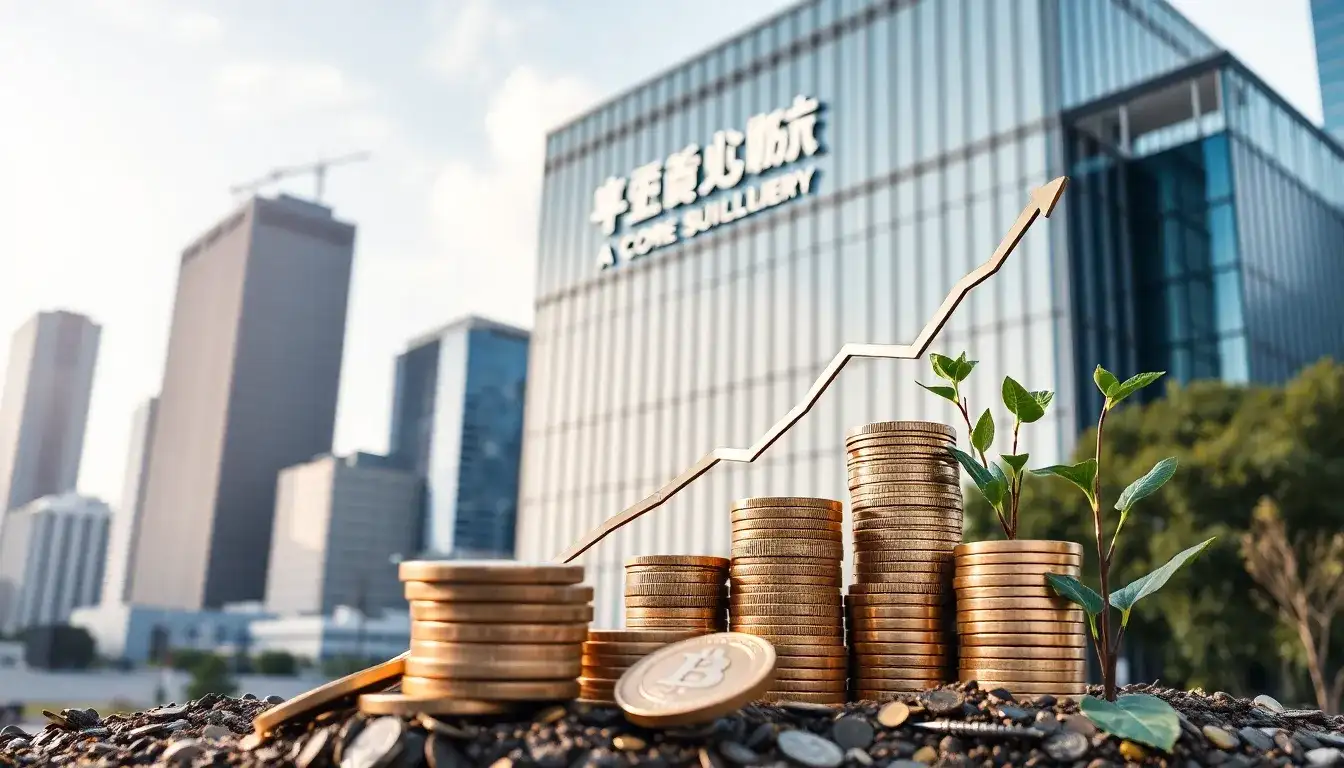
Tongwei Co., Ltd., a key subsidiary, is seeking to enhance its capital amid the challenging photovoltaic market. On March 29, Tongwei Co., Ltd. announced its plans to introduce strategic investors and implement a capital increase of up to 10 billion yuan to strengthen its financial structure and maintain its competitive edge in the high-purity silicon industry.
However, this 10 billion yuan investment did not boost market sentiment. On March 31, Tongwei Co., Ltd. saw its shares drop by 4.25%, closing at 19.13 yuan per share, which brought its total market capitalization to 86.123 billion yuan.
Strategic Investment Dynamics
As one of Tongwei’s core subsidiaries, Yongxiang Co., Ltd. operates four production bases located in Leshan, Sichuan; Baotou, Inner Mongolia; Baoshan, Yunnan; and Guangyuan, Sichuan, with a total high-purity silicon production capacity exceeding 900,000 tons. Since 2021, Yongxiang has maintained the top market share and shipment volume globally, but its profitability has faced challenges as the photovoltaic industry has cooled.
From 2021 to 2023, Yongxiang reported net profits of 8.632 billion yuan, 34.296 billion yuan, and 19.32 billion yuan, respectively. In the first three quarters of 2024, Yongxiang turned from profit to loss, reporting a net loss of 990 million yuan. The aim of introducing the strategic investment is to provide financial support, with the funds primarily allocated for repaying debts to financial institutions and bolstering working capital.
As of September 30, 2024, Yongxiang’s audited consolidated equity attributable to the parent company stood at 25.693 billion yuan. Before this capital increase, Yongxiang’s equity was valued at 27 billion yuan, with strategic investors expected to inject up to 10 billion yuan, acquiring no more than 27.03% of the equity post-investment. This would dilute Tongwei’s shareholding in Yongxiang to no less than 72.97%, ensuring that Yongxiang remains part of the consolidated financial statements of Tongwei.
Tongwei has also established multiple exit options for these strategic investors. According to the announcement, Tongwei has the right, as per the relevant agreements, to repurchase all or part of the equity obtained by the strategic investors, which can be executed through private placements, convertible bonds, or cash payments.
Industry experts suggest that this move serves a dual purpose: it provides financial support to Yongxiang through equity financing as a means to reduce debt and financial risks, while also ensuring a stable long-term equity structure for Yongxiang.
Strategic Shift Amid Losses
The decision to seek external support reflects Tongwei’s shift in strategy, particularly as the company is expected to report a net loss of 7 billion to 7.5 billion yuan in 2024. This marks five consecutive quarters of losses, totaling around 10 billion yuan in losses attributable to the parent company. By the end of September 2024, Tongwei’s cash reserves were only 16.465 billion yuan, with accounts payable and notes payable amounting to 45.003 billion yuan, resulting in a record high debt-to-asset ratio of 69.04% in nearly a decade.
In response to prolonged pressure, Tongwei announced in November of last year that, given the continued low prices of polysilicon, the company was exploring production reduction plans and would adjust its production arrangements dynamically based on market conditions.
Subsequently, Tongwei decided to gradually implement technical upgrades and maintenance work at four of Yongxiang’s high-purity silicon production companies, leading to a phased and orderly reduction in production. As of now, Tongwei has yet to disclose a plan for resuming production. In a February investor relations activity, the company stated that the resumption plans for these facilities had not been fully determined. However, they expect to achieve full production within approximately one month after resuming operations, leveraging their deep technological expertise and efficient operational capabilities in the polysilicon sector.
In addition to production halting to counteract fluctuations in silicon material prices, Tongwei appears to be preparing for technical upgrades to ensure its competitiveness. According to an announcement on February 14 from Tongwei’s official website, an environmental impact report was published for the Phase II technical upgrade project of Sichuan Yongxiang New Energy Co., Ltd.. The project outlines the construction of a new high-purity granular silicon facility, adding 20,000 tons of high-purity silicon production capacity per year (including 10,000 tons of rod-shaped high-purity silicon and 10,000 tons of high-purity granular silicon).
The introduction of the new concept of “granular silicon,” distinct from rod-shaped and particle silicon, has sparked speculation in the market. This could signal Tongwei’s entry into the granular silicon market. It is understood that granular silicon has a lower cost compared to the currently popular rod-shaped silicon, although its market share remains relatively low. For instance, GCL-Poly Energy Holdings, which primarily produces granular silicon, reported a cash cost of 28.17 yuan per kilogram in the fourth quarter of last year, while DAQUAN Energy, which primarily produces rod-shaped silicon, had a unit cash cost of 35.19 yuan during the same period.
However, Tongwei has denied these speculations. A company representative stated to several media outlets that the granular silicon project is a research initiative aimed at enhancing the competitive advantage of rod-shaped silicon, with core processes, key parameters, and quality control systems having developed an independent technological pathway that significantly differs from other industry technologies. Specific details are currently not disclosed due to intellectual property protection and commercial confidentiality.
The current market environment remains challenging. The Silicon Industry Branch of the China Nonferrous Metals Industry Association recently indicated that, based on supply and demand projections for this month, industry inventory is expected to continue declining. The significant consumption of polysilicon inventory by downstream sectors suggests a pessimistic attitude toward medium to long-term demand. At present, there is insufficient momentum for price increases in silicon materials. Unless other favorable factors emerge, prices are expected to stabilize in the short term, with downstream enterprises primarily focusing on structural replenishment.
Nevertheless, it is clear that Tongwei is actively addressing the photovoltaic winter through a series of strategies, including a substantial capital injection, production halts to mitigate losses, and technological upgrades, as it aims for a turnaround in the silicon material sector.







